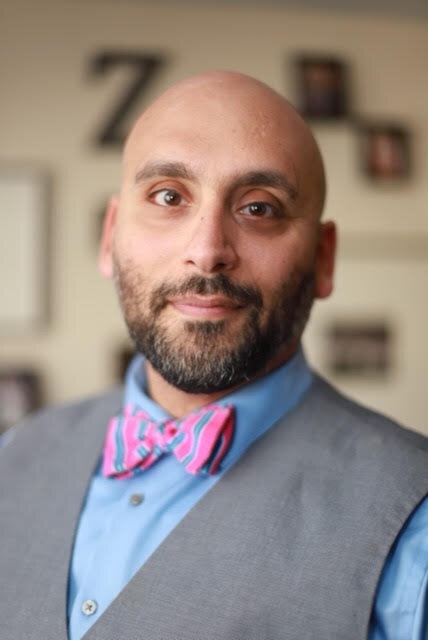Physician Heal Thyself . . .
/By Dr. Raymond Zakhari, NP
Counselor Advocate for Yourself, Pastor Forgive Yourself, Entrepreneur Reinvent yourself
Many people struggle with feelings of shame and guilt in regards to mental illness. The burden can be especially difficult for professionals. Professionals often have a hard time seeing themselves as human beings vulnerable to the same issues as everyone else. Doctors, lawyers, ministers, executives, entrepreneurs, as well as other high achievers are traditionally ambitious, driven, and accomplished individuals. They have very high standards for themselves, and people around them may have even higher expectations.
People that are used to being successful in various endeavors and having a sense of mastery do not typically deal well with certain life events. Some life events such as a failed deal, a loss of a relationship, a challenge to competence or professional identity can easily overwhelm your capacity to cope. A feeling a failure may grow within you and your confidence can feel undermined. Fears of a marred reputation, perception of weakness may build. You may begin to worry about your status as someone who may be perceived intellectually inferior.
Leaders, especially prominent leaders, are so demanding of themselves that they don’t allow for physical illness much less a psychiatric mental health illness. High achieving leaders have usually attained their status by having a resilient tenacity towards achieving a goal. Like all people professionals are human, and they too have limits to their abilities to cope with multiple stressors. Professionals however are at a slight disadvantage than the average person because it is very unfamiliar territory to have to rely on other people. Doctors, lawyers, ministers, executives are used to being the rocks of the community. The ones that seemingly have it all together, the ones whom others go to for help.
Professionals who find themselves in leadership often lament “it is lonely at the top”. Professionals and leaders often find themselves without a social support network either by design or by default. In order to build a successful career and reach the highest levels of achievement certain aspects of daily life may have had to be sacrificed. In an effort to be the go to person in an industry certain relationships may have had to be kept at arm’s length in order to maintain objectivity. Professionals and leaders may derive their entire identity from the work they do. They may see their work as a calling rather than a livelihood. Consequently they may derive most of their self-worth from the results obtained. As a result this person is at the highest risk for ineffective coping during times of crisis. The combination of depression and despair can be fatal.
Professional’s therapy allows the development of a therapeutic relationship in a discrete manner that allows for the development of coping skills, medication management, and introspective reflection to create a life congruent with a personal values system. Treatment is intensive for the first 3 weeks and tailored to goals to create habits of mental wellbeing. Some common skills include the expansion of resilience, and empathy to the self. Participants will learn to build an internal validation system to cultivate a sense of belonging which will develop feelings of understanding leading to the ability to reconnect with others.
Some common struggles for professionals in therapy include overcoming familial, cultural stigmas associated psychiatry and mental health issues. Ambivalence and resistance is normal and common in the early phases of seeking help of any kind, especially mental health help. In the confines of the confidential therapeutic relationship the professional will learn to become vulnerable which will learn to mastering the first developmental task of life, trust. As therapy progresses professionals may learn to reconnect with their primary relationships or develop them. Professionals will learn to use the relationships outside of work to gain a sense of security, love, belonging, confidence and wellbeing that is essential to sustain working relationships and personal sanity. As the professional learns to trust other people emotionally they become more self-reliant.
The process of reevaluating priorities related to one’s career can be a wrenching process. Finding safe people with whom to share struggles at work can aid in recovery for those who do return to their former vocations. There is no expectation to be vulnerable with everyone at the workplace nor is it professional, however building a trust worthy social net can make the work more enjoyable. As therapy progresses allies, safe havens, and wisdom will be cultivated. The therapeutic process will capitalize on the professional’s calculated risk taking proclivity as well as enhance resilience by teaching how to deal with failures, trying again, and refining character. Healing will occur on the physical, psychological, spiritual, and relational levels.
If you are a professional who can relate to what was written then 2015 may be your year for wellness. Ambivalence is normal and common. I will meet you where you are emotionally and physically (home, office, or hotel in Manhattan, walk and talk) and work with your motivation for change to improve your life.


